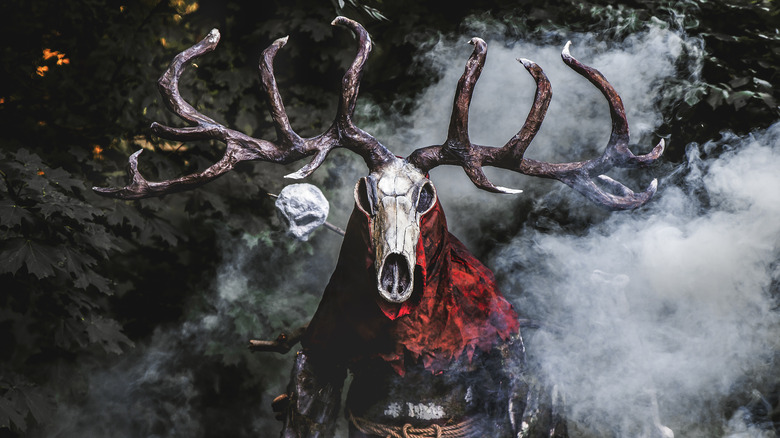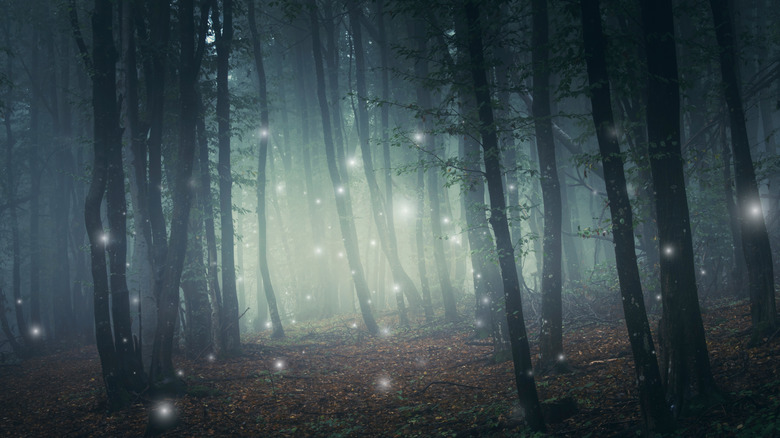The Myth Of The Leshy Explained
Based on a popular book series by the Polish author Andrzej Sapkowski, the Netflix series "The Witcher" tells the story of Geralt of Rivia (Henry Cavill), a monster hunter with a mysterious past (via Vulture). Although it's a richly-imagined fantasy realm, there are several references to monsters from real-life human legend and mythology, and Geralt encounters the basilisk, golem, and wyvern — each one chilling in its own right. But it's perhaps the Leshy — sometimes called the Leshen — that is most terrifying in its highly-anticipated appearance in the show's 2nd season, which premieres on December 17, 2021.
According to CBR, the Leshen — sometimes called Borovoi, Gayevoi, or Leshak, among other names — is part of Russian, Polish, and Slavic pagan mythology. Once the actual myth of the Leshy is explained, it could be considered among the most chilling creatures of mythology, and that's especially true for children. Let's take a look at this terrifying creature in more detail.
The Leshy is a forest spirit
Despite all the minor variations in the myth of the Leshy, what remains true is that they are spirits of the forest with the magical ability to control plants and animals. Some versions of the Leshy say the creature is married, and others say it even has children (via ThoughtCo). Less purely malevolent and typically more of a treacherous trickster, the story goes you need to appease the Leshy while traveling in the woods, or else it might lead you astray.
One of the most sinister aspects of the myth of Leshy, however, has to do with abducting children. If a child misbehaves and is cursed by their parents, the Leshy will steal them and take them deep into the forest to live with the forest people. Otherwise, the Leshy typically has a man-like appearance with a missing ear, eyelash, and eyebrows (via Britannica). In their native forest, the Leshy is as tall as trees, but once it steps out of the woods, it's nothing more than a blade of grass. Let's hope you don't meet one the next time you're out on a hike.

